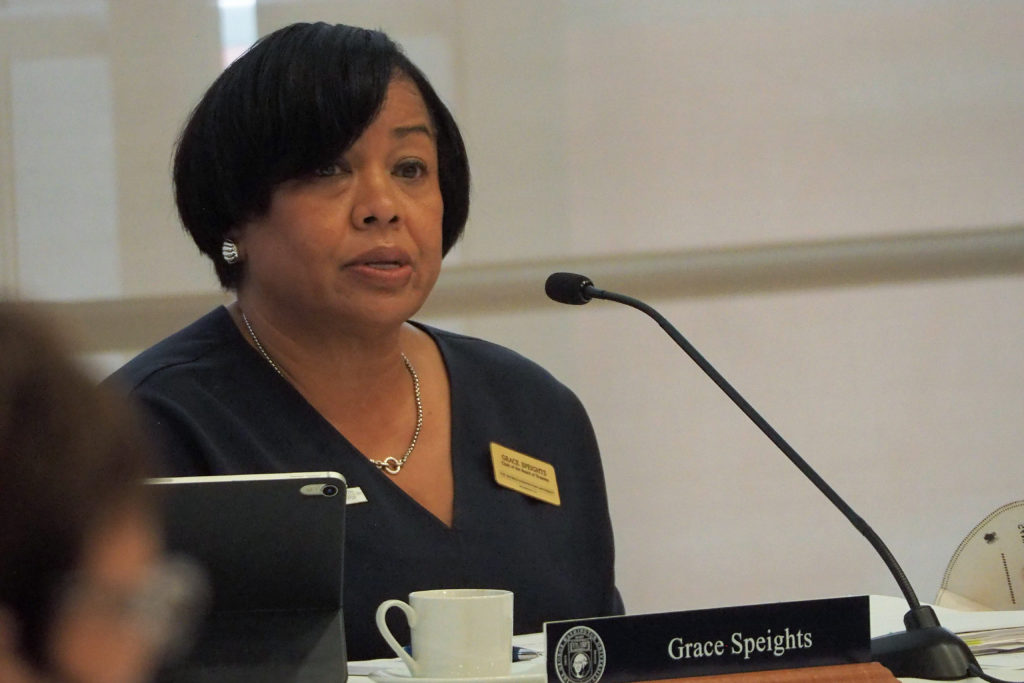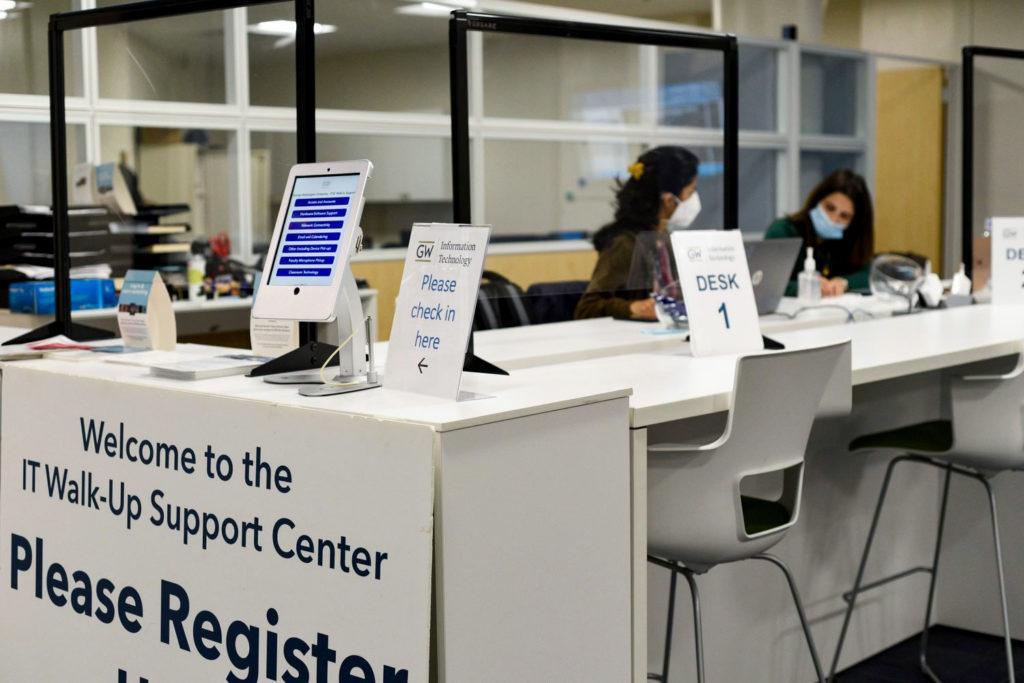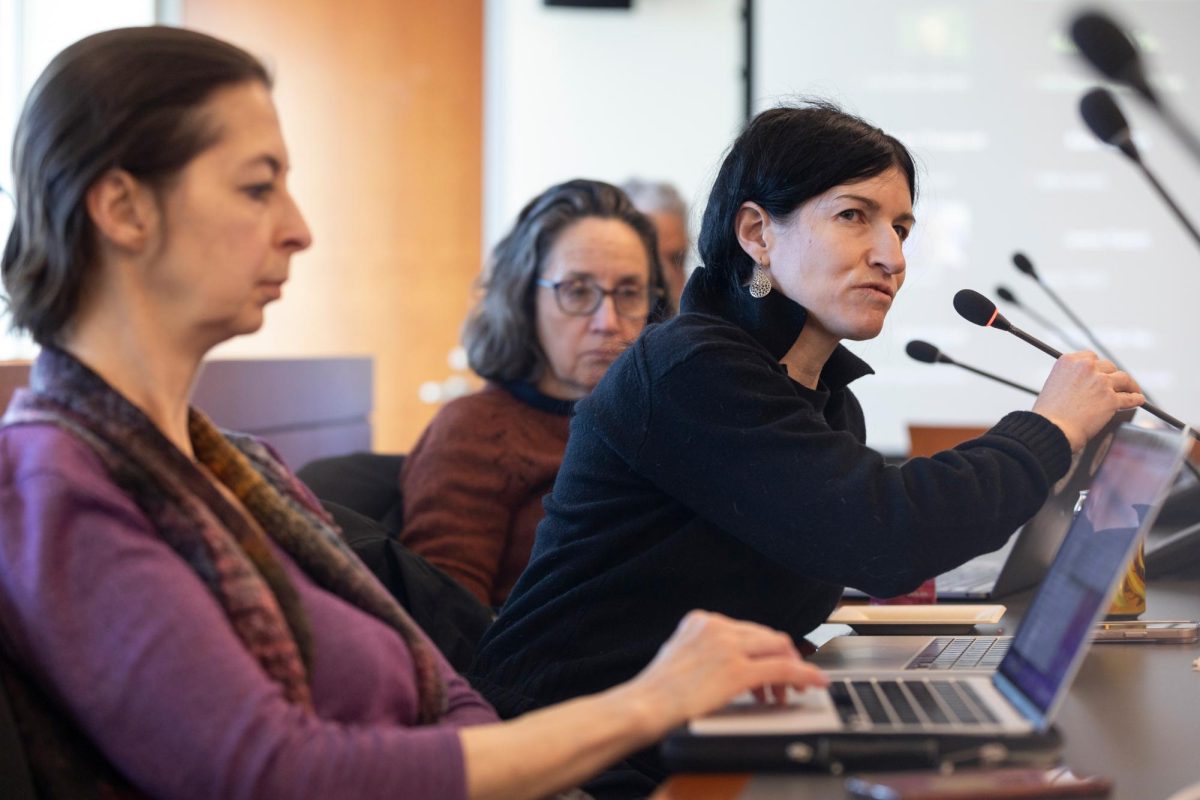Board of Trustees Chair Grace Speights announced the formation of the next presidential search committee Thursday, commencing the launch of the search for the 19th University president.
Trustee and alumna Roslyn Brock will lead the 17-member committee, and incoming Faculty Senate executive committee chair James Tielsch will serve as the committee’s vice chair, according to an email Speights sent to the GW community. The committee’s formation marks the launch of the presidential search that Speights first targeted for “early spring,” as the University prepares for the transition from interim University President Mark Wrighton’s term, which will last no more than 18 months.
Wrighton replaced former University President Thomas Leblanc in January after Speights said officials were “concerned” about finding a talented long-term presidential candidate because of the large number of presidential searches ongoing at universities nationwide and because of negative media attention directed at GW. Officials and trustees had since remained silent on the presidential search process until Thursday’s announcement.
“At the dawn of the University’s third century, we are looking for a leader who will reinforce our commitment to academic excellence, enhance our academic reputation and help us achieve our aspirations for preeminence,” the email from Speights states.
The committee includes nine trustees, five faculty members, one administrator and the incoming presidents of the Alumni and Student associations. The previous presidential search committee – which officials formed in 2016 after former University President Steven Knapp announced his departure from GW – included 19 members of trustees, faculty and student representatives.
Faculty expressed concerns in 2016 that the search committee lacked diversity – the six faculty members who served on the committee were all white and from science, math, law or medical fields. All but one were men.
The Faculty Senate in October formed a faculty consultative presidential search committee, which consults trustees on the search process but does not have a formal say in the search. The senate had voted in August to expand the consultative committee to include up to eight additional professors beyond the nine faculty members from each of GW’s nine schools with senate representation to diversify areas like rank, discipline, gender and race.
Speights said all faculty members on the search committee are from the Faculty Senate or the faculty consultative committee, membership that are included “in the spirit of” GW’s recent push to enhance shared governance. Since LeBlanc announced his plans to retire, officials, trustees and faculty have worked to develop a definition of shared governance relating to GW’s decision-making process and to rebuild trust between administrators and the rest of the University community.
In a recent survey, trustees, faculty and administrators were divided over the different groups’ roles in the presidential search process. The majority of Board members want to keep control over the search, but most faculty and administrators prefer a shared role in the search, according to the results.
Speights said she is asking the search committee, Faculty Senate executive committee and the faculty consultative search committee to convene during the summer to start discussing the qualifications that officials are looking for in candidates. She said the committee will start its work “soon.”
“Because of the extremely competitive market for high quality presidential candidates, the committee is charged with being innovative and flexible in finding and attracting outstanding talent,” she said.
She said community members will be able to submit feedback about the search process and propose potential candidates to fill the position. In the last presidential search, faculty and other committee members nominated more than 100 candidates to serve as University’s president.
Speights said officials will start searching for a third-party search firm to help streamline the search process. Officials hired higher education executive search firm Isaacson, Miller to assist in the 2016 presidential search.
She thanked Wrighton for allowing GW more time for the presidential search process, saying that one of his top priorities has been to “position” the University for its next permanent leader.
“With his leadership, the dedicated service of our Presidential Search Committee, and the feedback and engagement of the Faculty Consultative Committee and our entire campus community, we are in a position of strength to recruit the best person to serve as our next leader,” she said.








